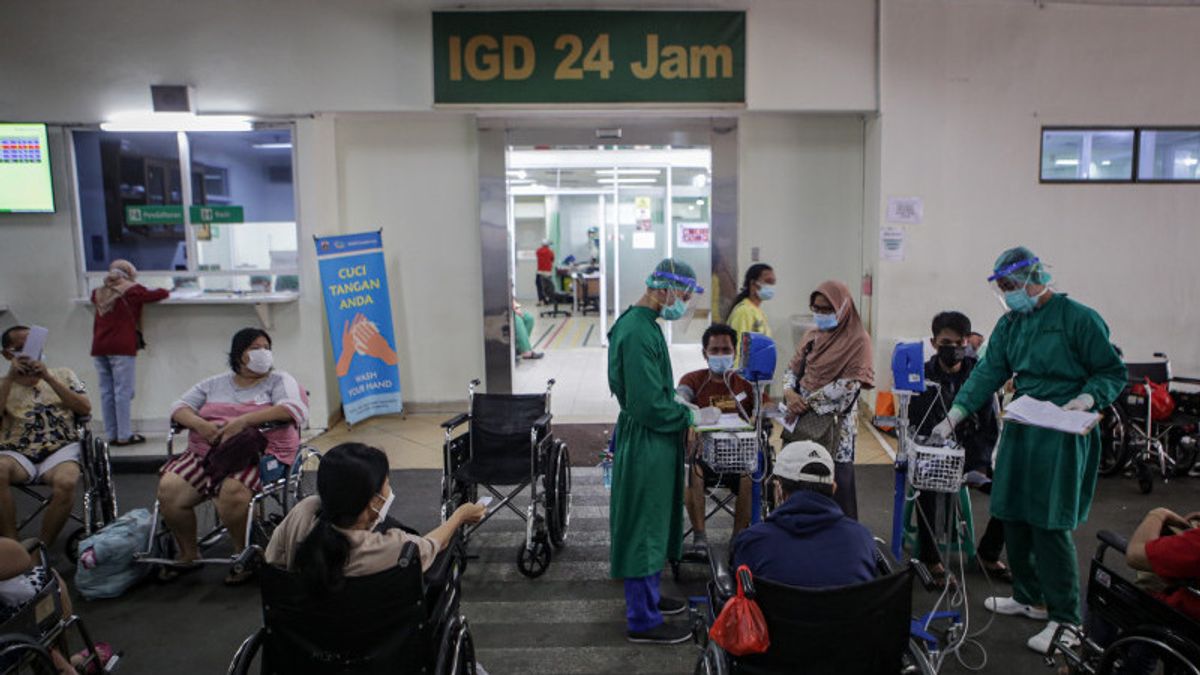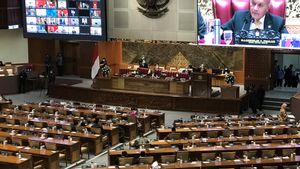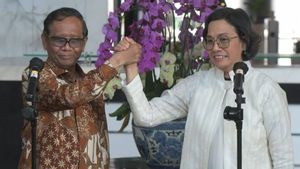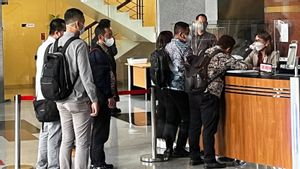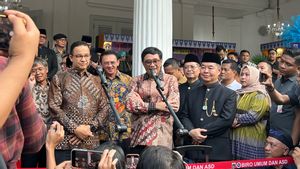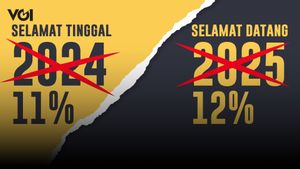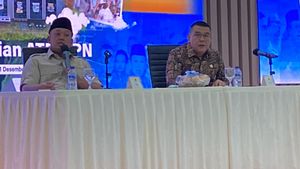JAKARTA - Vice President (Wapres) Ma'ruf Amin revealed that the community's participation in the National Health Insurance (JKN) program has now reached 248 million people.
The Vice President revealed this during the presentation of the Universal Health Coverage Award (UHC) to the Regional Government at Balai Sudirman, Jakarta, Tuesday, March 14.
"Nationally, JKN program participation is recorded at more than 248 million people. This means that around 90.3 percent of Indonesia's population already has health protection, where 60.39 percent of JKN participants are included in the JKN Contribution Assistance Beneficiary Program," he said.
The Vice President also said the government continues to be committed to providing health protection for the poor and vulnerable.
Currently, there are approximately 96.8 million people participating in PBI Health Insurance whose contributions are paid by the Government, including contributions from the provincial government starting in 2020.
"Therefore, we should be proud because Indonesia is able to become one of the countries with a large health insurance membership coverage, so that almost the entire population gets adequate health protection," he said.
Going forward, said the Vice President, the Indonesian nation must continue to support the achievement of Universal Health Coverage (UHC) targeted by the 2020–2024 RPJMN, namely at least 98 percent of the total population being JKN members.
The Coordinating Minister for Human Development and Culture Muhadjir Effendy said that currently the UHC target contained in the RPJMN had not been achieved so hard work was still needed from related parties.
"The government in the RPJMN targets that by 2024 the entire population must be protected in JKN at least 98 percent. So the target has not actually been achieved, so we have to work hard," he said.
The Main Director of the Social Security Administrative Agency (BPJS) for Health Ali Ghufron Mukti said that BPJS Kesehatan is working hard to carry out various advocacy efforts for the Regional Government so that all residents in each region can be integrated with the JKN-KIS Program.
However, Ghufron emphasized that achieving the UHC title must also ensure that every citizen has access to fair, equitable, and quality health services, be it promotive, preventive, curative, or rehabilitative services.
For this reason, BPJS Kesehatan also seeks to expand access to these health services by collaborating with health facilities, both at the first level and at the advanced level (hospitals).
SEE ALSO:
BPJS Kesehatan encourages related ministries and regional governments in terms of providing facilities and infrastructure in the regions so that the quality of health services can be felt the same, wherever the participants are.
Ghufron also emphasized that the current implementation of the JKN-KIS program is on track and a strong and reliable JKN-KIS ecosystem has been built which is also supported by the use of information technology and digitalization of services that are continuously being developed.
BPJS Health as a public legal entity has also been carrying out its duties for almost 10 years in accordance with the mandate of Law Number 24 of 2011 concerning the Social Security Administering Body which is directly responsible to the President.
On that occasion, the Vice President handed over the UHC awards to a number of provinces including Bengkulu, Yogyakarta Special Region, Bali, East Nusa Tenggara, Central Kalimantan, North Kalimantan, North Sulawesi, Central Sulawesi, Southeast Sulawesi, West Papua, Central Papua, Highlands Papua, and Papua Southwest.
The English, Chinese, Japanese, Arabic, and French versions are automatically generated by the AI. So there may still be inaccuracies in translating, please always see Indonesian as our main language. (system supported by DigitalSiber.id)
